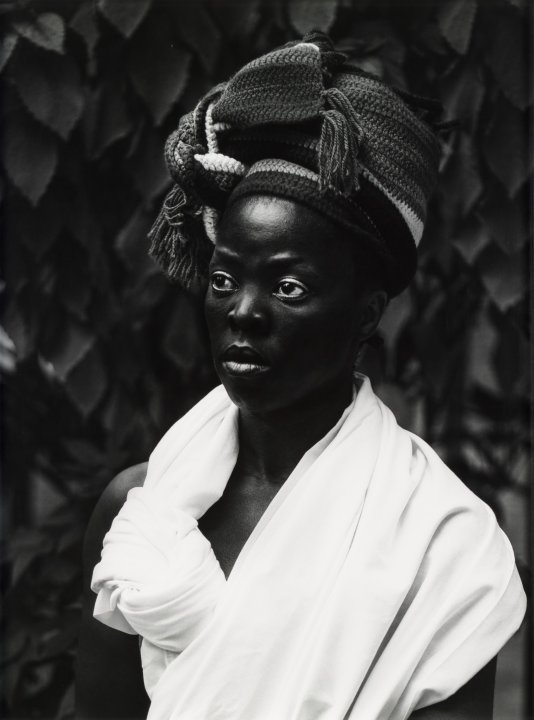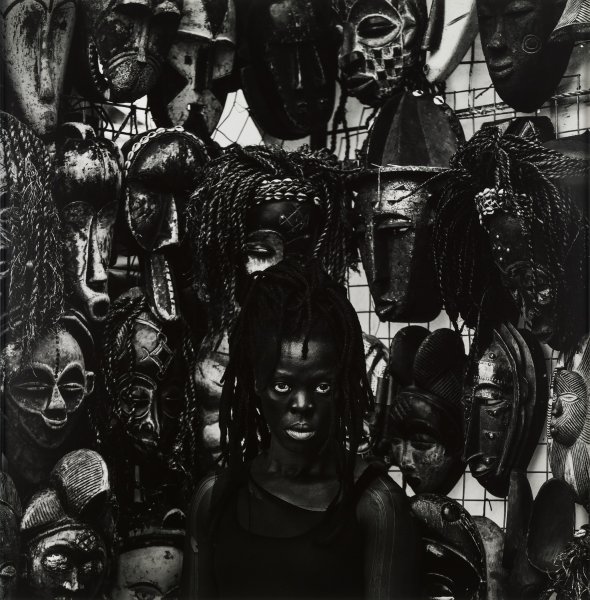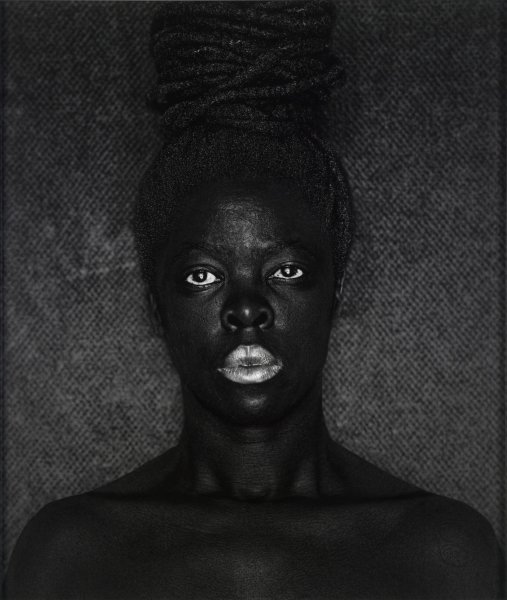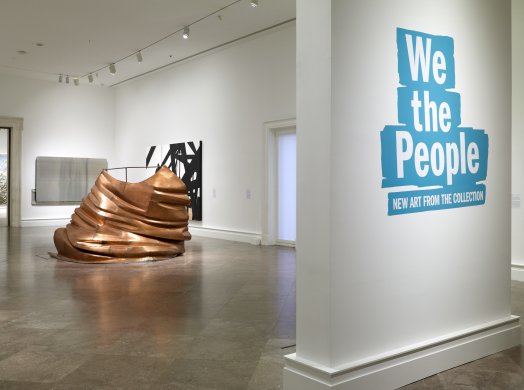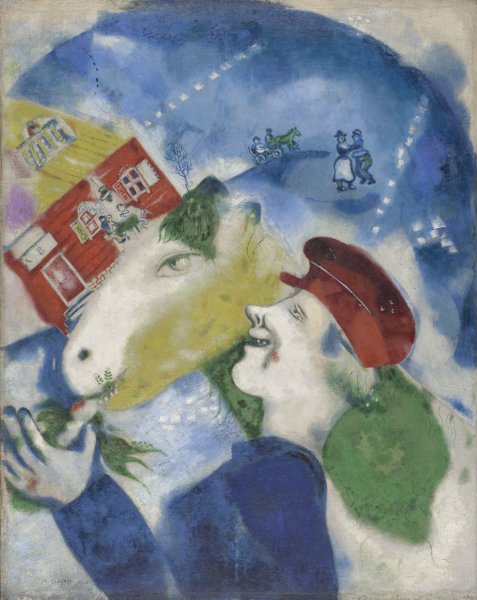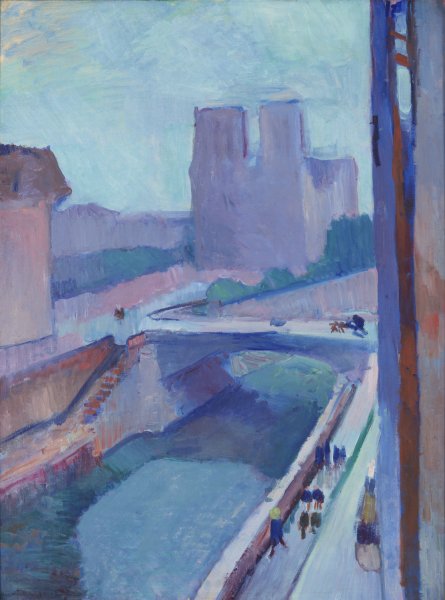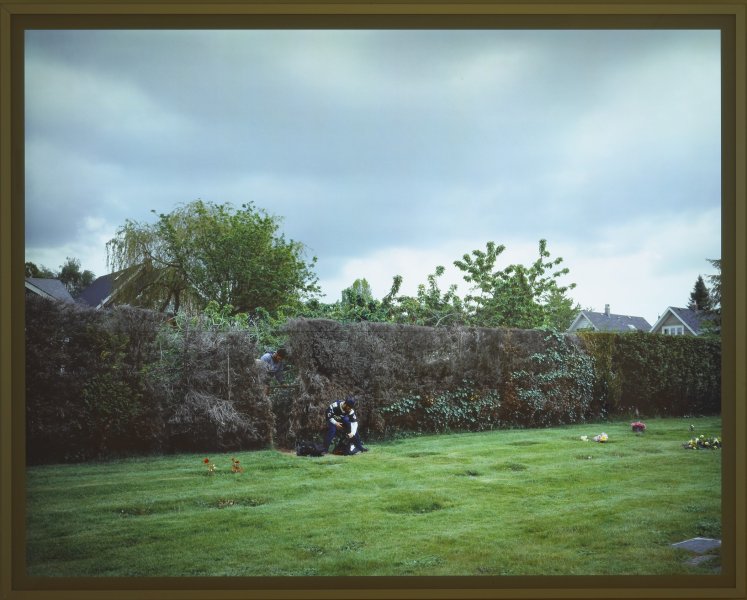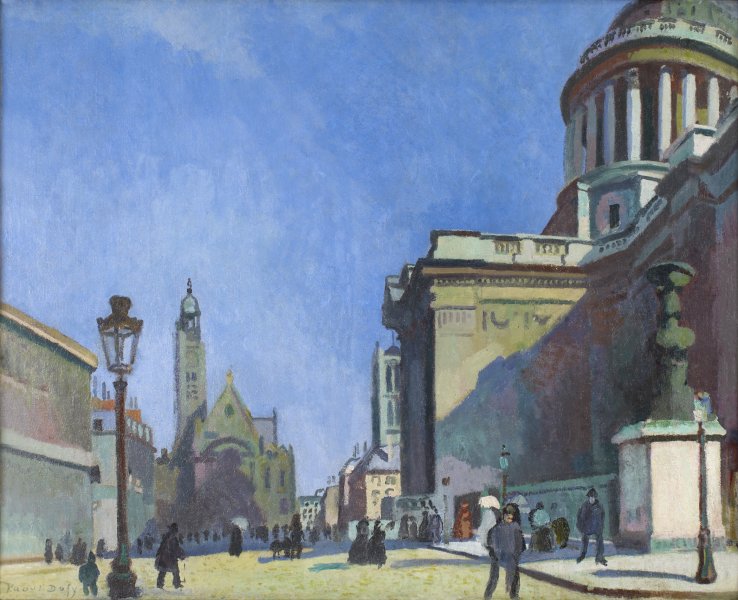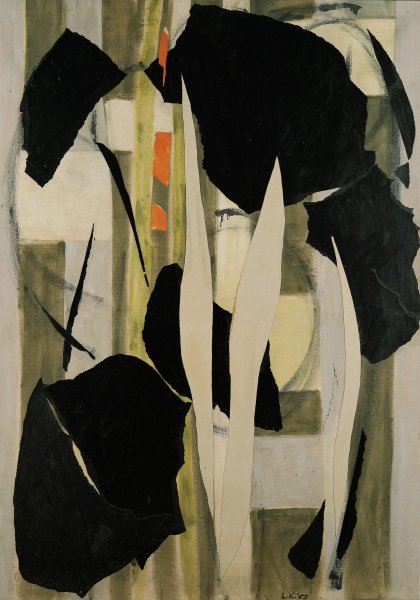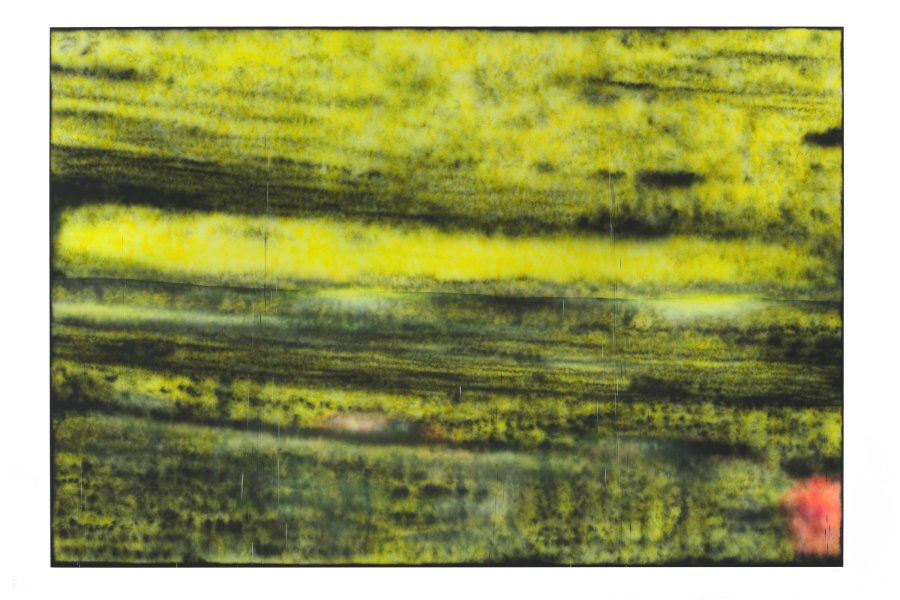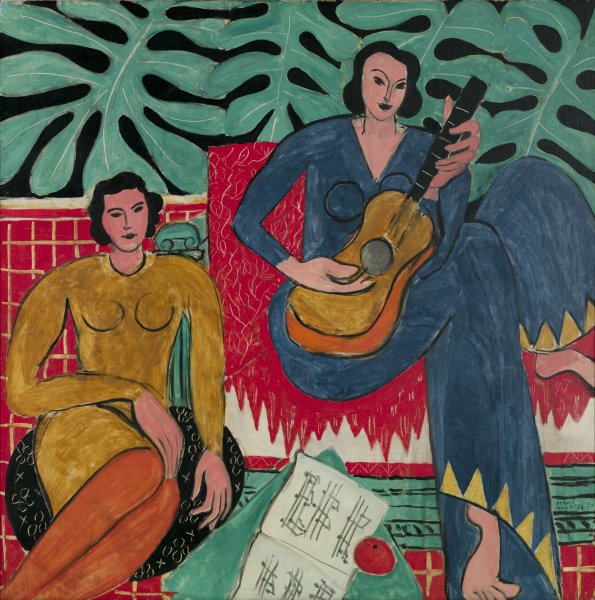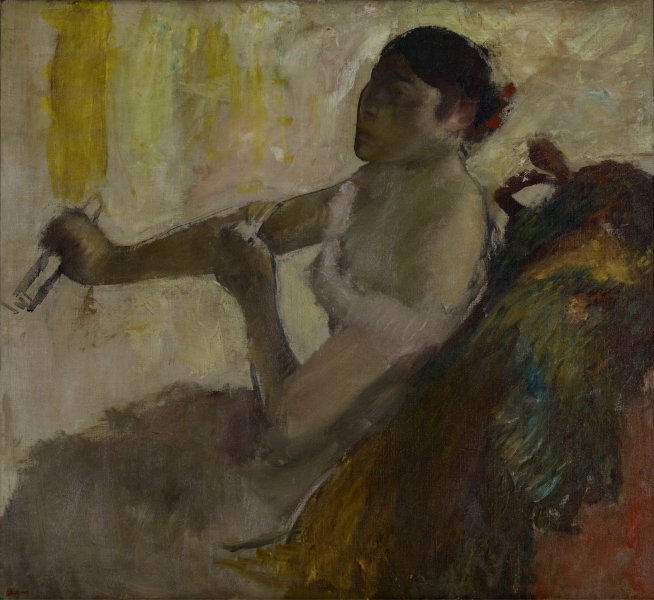Zanele Muholi
South African, born 1972
Fezekile IV, Cincinnati from the series Somnyama Ngonyama (Hail the Dark Lioness), 2016
Artwork Details
Materials
gelatin silver print
Edition:
8/8
Measurements
sheet: 19 3/4 x 15 inches (50.16 x 38.1 cm); framed: 20 1/2 x 15 7/8 x 1 3/4 inches (52.07 x 40.32 x 4.45 cm)
Collection Buffalo AKG Art Museum
Credit
Bequest of Arthur B. Michael, by exchange, 2018
Accession ID
P2018:8.1
In this self-portrait, South African photographer Zanele Muholi uses light and contrast to exaggerate the darkness of black skin. Muholi’s bearing suggests an unapologetic pride in black identity. “Just like our ancestors,” the artist has said, “we live as black people 365 days a year, and we should speak without fear.” At the same time as it celebrates the beauty of blackness, this photograph also alludes to problematic representations of people of color by white artists throughout the history of art. Here, Muholi dresses and poses like a Renaissance bust, reminding us that the default body in Western art has historically been white. When black and brown bodies are represented in Western art, they are often exoticized and exploited.
Label from We the People: New Art from the Collection, October 23, 2018–July 21, 2019
